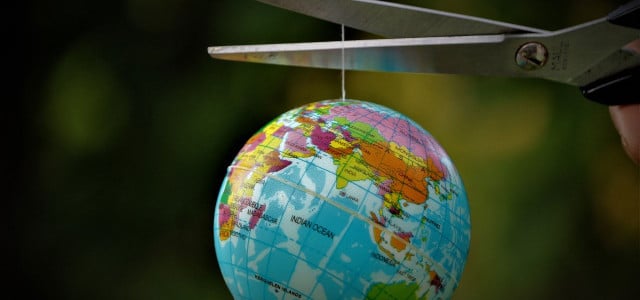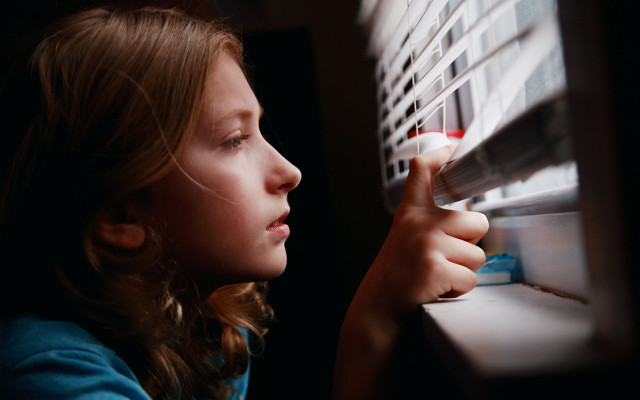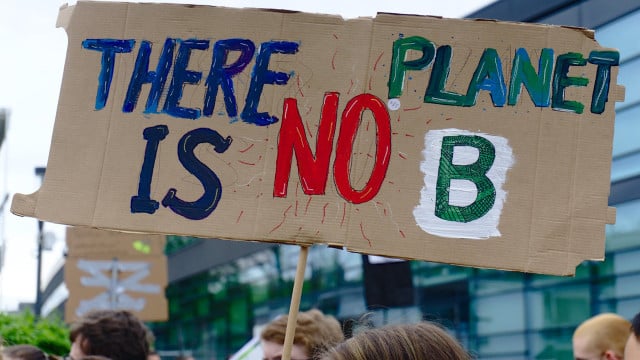
The climate crisis worries many – and rightly so. But how to deal with “climate fear”? We spoke to a member of Psychologists for Future.
“Sometimes there are days when you just get so desperate,” writes Joel, a Utopia reader. The reason for their desperation actually affects us all – climate change. In response to our query, Joel explains: “If you are an emotional or empathetic person and deal with the subject a lot, then it weighs heavily on you and you ask yourself why politicians and people allow it.” When she thinks about the consequences, she gets she afraid. Will the world manage to keep the effects of climate change under control?
Utopia reader Anne has similar concerns. But not for herself, but rather for her son: “Will he have enough water or food later?” she asks herself. “Does he perhaps have to leave home because his homeland is ‘threatened’ because of the climate?” Anne would like to have a second child, but is at odds with herself because she doesn’t know if she wants to expect this future from him.
Climate anxiety: why the term is problematic
Many are like Joel and Anne. According to a survey by the opinion research institute Insa, 42 percent of Germans fear that climate change could endanger the stability and security of the world. This is 65 percent of young people – according to the latest Shell study from 2019. The topic remained highly topical in 2020 – despite Corona: According to a study by the Federal Environment Agency, 65 percent of those surveyed still valued the topic of “environmental and climate protection”. “very important”. People post their concerns on social media using the hashtags “#ecoanxiety” and “#climateanxiety”. Terms such as “climate fear” and “climate depression” are also common.
The terms are not always appropriate, says psychologist Felix Peter, who is involved with Psychologists for Future. Anxiety and depression are often associated with disorders. The term can thus imply that fear of climate change is also an illness.
The so-called “climate fear” is just one of many feelings with which we react to critical changes in the environment. Other people may feel more anger, sadness, or hopelessness. “It’s a natural response to a perceived threat and not primarily a disease,” he said.

Not everyone is equally vulnerable to climate change anxiety
Why does climate anxiety affect some people more than others? According to psychologist Felix Peter, this is due to individual requirements.
Some people are generally more sensitive and prone to anxiety. A large part of society often has difficulties in classifying and talking about their own feelings. In addition, children and young people, for example, have often not yet learned how to deal with threats appropriately during their development.
He also includes people who are intensively involved with the climate crisis, such as scientists and climate activists, in the risk group. But people whose everyday life is closely linked to the environment are also particularly affected; for example farmers, foresters or indigenous population groups.
The way in which climate anxiety is expressed is also very different. Symptoms, as described by Utopia reader Sassa, are typical: “I know people […] who can’t sleep because they’re afraid of the future.” According to Peter, sleeping difficulties or lengthy periods of brooding are typical symptoms of anxiety. It can also cause mood swings, sadness, and restlessness. In extreme cases, anxiety and stress can trigger depressive moods and psychosomatic complaints such as abdominal pain or gastrointestinal problems.
This is how “climate fear” arises
Fear is actually useful – even the so-called climate fear: “It can trigger a future-oriented attitude that motivates us to deal appropriately with a threat and to do things that can avert this threat,” explains psychologist Felix Peter. “We experience that, for example, with the people who are involved in Fridays for Future.”
According to Peter, other people tend to suppress the feeling of fear. “The information can be completely hidden or changed in such a way that it no longer appears threatening.” Climate change, for example, is then played down or denied entirely. As a result, we no longer deal with the problem because it no longer appears to be a problem to us personally.
This is also a normal reaction, says Peter. “If we were to worry about everything, we would be massively overwhelmed.” But there are other ways to deal with fear – as a member of our community shows:
“It doesn’t help anyone to be constantly panicking and believing it’s all too late anyway,” explains Utopia reader Peter in response to our query on Facebook. He finds that fear keeps people from talking about solutions. That’s why he tries to look at the climate crisis constructively, “not ‘we have to prevent that’, but ‘it would be a success if’.”
The problem with the climate crisis is its global scale. With a problem this big, we quickly get the feeling that we can’t do anything about the threat, explains Felix Peter. The speed with which political decision-makers are reacting to climate change also worries many – for example Utopia reader Silke. “We’re running out of time and although we all know it, I have the feeling that nothing is happening on the big adjustment screws (especially in politics),” she writes. She finds it difficult to see anything positive in the future.
It has nothing to do with anxiety or depression. “Climate anxiety” is not a psychiatric diagnosis, but a natural response to a threat.
More on the topic of climate and what you can do personally in the Utopia Podcast on Spotify, Apple Podcasts, Google Podcasts & Co:
3 Tips to Reduce Fear of Climate Change: Here’s what you can do
Even if the feelings are completely natural – climate fear, anger and sadness can weigh heavily on us. But how to deal with these feelings? The psychologist Felix Peter has various tips:
-
talk about worries This goes for both friends and family. Alternatively, those affected can discuss the topic with others, for example in climate groups (also online).
-
Keeping the balance between actively dealing with the climate crisis and opportunities to relax. For the former, the following questions can help: How have I managed to deal with my worries so far? Who and what makes me feel like I can make a difference? How can I specifically make a contribution? But the following questions are also important: What helps me to relax? When is it time for a break?
-
Get involved in effective climate protection. “Preferably in a social setting,” advises Felix Peter. For example, you can visit demos with friends, join a local group of the climate movement or get involved in a climate protection party. But even seemingly small contributions count and should be appreciated. Peter advises starting where you see your strengths. Some like to organize, others may be better at communication.
If there is no club in your area, you can still get involved privately like Utopia reader Anja: “I collect rubbish on a voluntary basis, provide information about toxins and plastic consumption of cigarette butts and hang up converted Tetra-Paks for cigarette butts via our plogging group. Utopia reader Anne works in a library. There she reduces plastic by testing book covers made from alternative materials.

If the burden gets too big: This is how you get help
Some people find it difficult to deal with the feelings that climate change causes in them. Psychologist Felix Peter explains that if you can neither ward off a perceived threat mentally, nor have the feeling that you can avert it through active intervention, a “clinically significant anxiety disorder” can develop.
He advises those affected to get professional help if they notice that they are permanently impaired in their everyday lives. This can be expressed, for example, in the fact that they find it difficult to feel happy or to pursue their job. Even if friends or your partner tell you that you seem very depressed lately, this can be a first indication.
Peter advises: “In this case, those affected can visit their family doctor or take care of an initial therapeutic consultation directly. For example, if you are involved in a climate movement, we at Psychologists for Future advise you to take a break first.” Those affected should not concern themselves too much with climate issues for a while and take time to recover personally.
Climate change is not a psychological problem
The cases just described are real anxiety disorders. This has little to do with the widespread sentiment surrounding concerns about climate change. Unfortunately, the media often does not report sufficiently differentiated about climate fears, criticizes Felix Peter.
“If you use psychiatric terms such as anxiety disorder or depression, then you pathologize these feelings, which have justifiably arisen from the threat of climate change.” That means that the fear to be overcome comes into focus and it is suggested that we we just have to adapt better.
Utopia says: Climate fear is not a personal, psychological problem, but the reaction to a global catastrophe. In order to stop them, we don’t have to fight our fears, but the causes. And not only the consumers who plan with worries, but also the politicians.
Do you want to integrate more climate protection into your everyday life? Here you will find tips: Climate protection: 15 tips against climate change that anyone can do
Many thanks to the many Utopia readers who shared their experiences with us. Unfortunately, not everyone was able to have their say in the text. Click here to go to a Facebook thread where you too can share your concerns about climate change.
Read more on Techzle.com:
- List: important environmental organizations & environmental protection organizations
- 11 everyday things everyone can do for the environment
- You should have read these 6 books on sustainability and climate
Note: This post was first published in 2020 and has since been updated.
German version available: Eco-Anxiety: What It Means to Fear for the Future of Our Planet